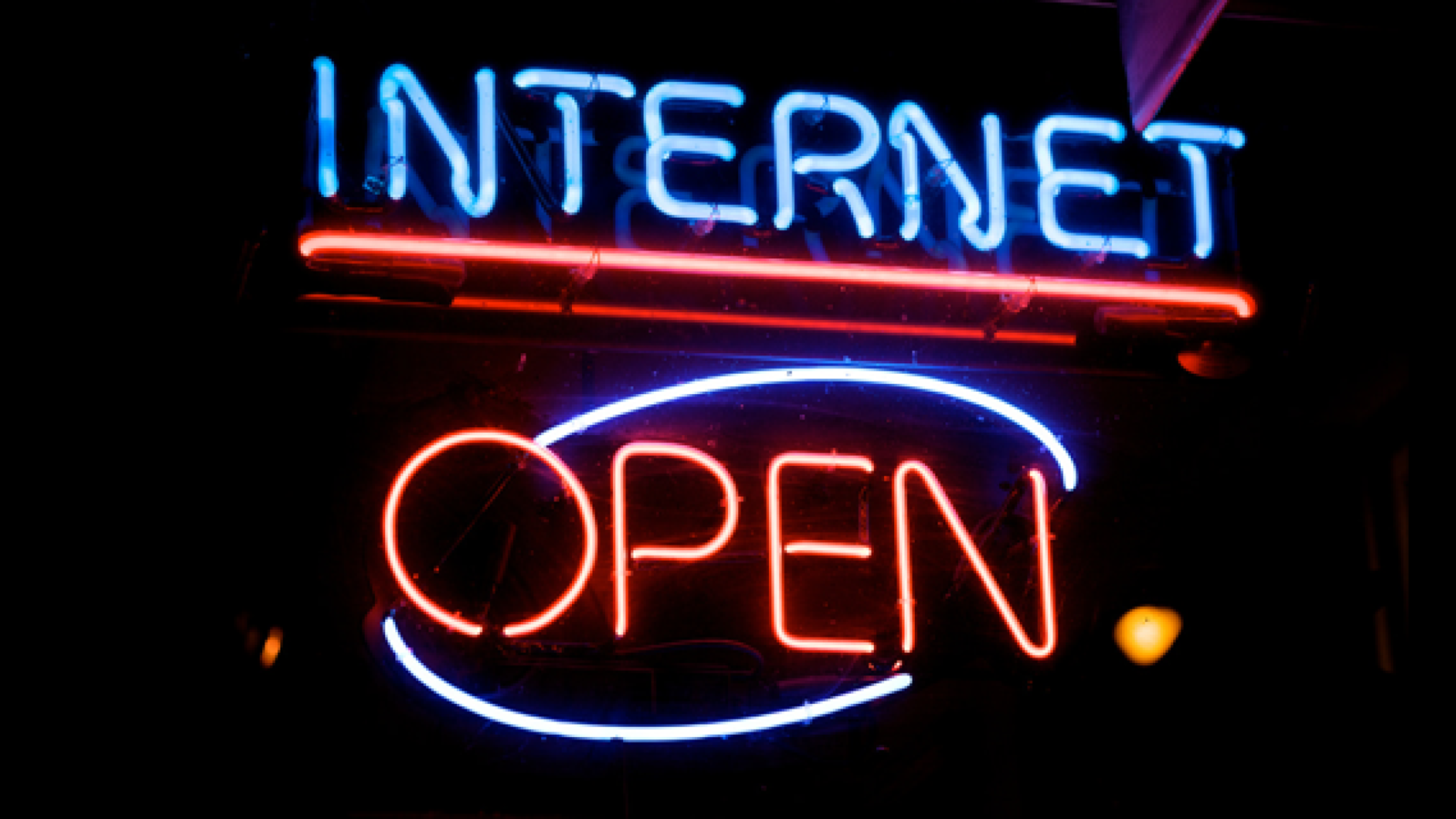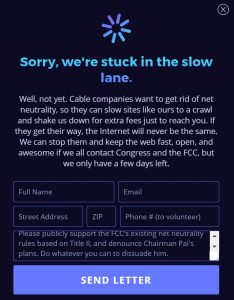PLOS Supports Net Neutrality to Ensure Global Access to the Scientific Literature
Editor’s Note: PLOS BLOGS is reposting this July 12, 2017 Official PLOS Blog to articulate the arguments against anticipated actions by the FCC, scheduled for next month, which would repeal net neutrality regulations.
PLOS works to remove barriers to public access of scientific research. Typically, these barriers are considered in terms of copyrights and journal subscriptions, but unfettered access to network infrastructure also contributes to supporting readers’ access to scientific literature. In simple terms, unencumbered dissemination of scientific research depends on a fair Internet. The provision of a fair and open Internet lies in the hands of Internet Service Providers (ISPs) and government agencies that regulate these providers. PLOS supported the July 12, 2017 Day of Action in the United States, led by Battle for the Net, aimed at publicizing the issues surrounding Open Internet Rules and their critical role in maintaining Internet freedoms as currently in place.
In February 2015, the US Federal Communication Commission (FCC) reclassified broadband providers as common carriers rather than information providers under Title II of the Communications Act of 1934, the law that continues to regulate modern communication modes such as the Internet. This gave the FCC authority to ensure that established, large corporations including AT&T, Comcast and Verizon can’t block, slow (throttle) or otherwise interfere with Internet traffic. Innovations in online businesses and services, including those of PLOS, have thrived under Title II regulations. Importantly, these regulations in the US provide each and every user of the Internet a guarantee that ISPs and government regulators treat all data on the Internet the same, without discriminating against or charging differentially by user, content, website, platform, application, type of equipment or mode of communication (see https://en.wikipedia.org/wiki/Net_neutrality). These protections are known as net neutrality; scientists and those working to support the scientific endeavor rely on net neutrality for unprejudiced access to databases, the literature and information services.
Allowing ISPs to sort traffic based on content, sender and receiver opens the door for corporate and government censorship which would greatly hinder access to scientific information around the globe.
To protect against this type of restriction in information flow, the first EU-wide Net Neutrality rules were adopted in October 2015 with public guidelines released by the Body of European Regulators for Electronic Communications in late 2016.
In the US, the current FCC Commissioner wants to weaken these protections and this could have consequences for all scientists, not just those in the US: access to information around the world could become pay to play without these protections. Services provided by publishers such as PLOS and other providers could be restricted for all our users around the world, unless we pay for priority access to our content. This will affect any Internet traffic that routes through the US, from services relying on servers located in the US to requests that are routed through the US. For instance, most of the Domain Name Server (DNS) requests for South America, Central America and the Carribbean are routed by servers located in Florida.
July 12, 2017, was a Day of Action in support of a fair and open Internet. Visitors to the PLOS.org homepage (www.plos.org) and active PLOS staff blogs (The Official PLOS Blog, EveryONE, PLOS Biologue, Speaking of Medicine, PLOS Channels and Collections, PLOS Tech and PLOS Podcasts) saw a message of explanation and letter of support for net neutrality in the form of a pop up window. This message appeared only on July 12, once per site, per device. Visitors to these web pages could choose to either immediately close the pop up by clicking on the x in the upper right or fill in the four boxes to send a message to the FCC in support of its current Open Internet Rules and the efforts to dissuade FCC Chairman Ajit Varadaraj Pai from his plan to roll back these rules. Public comment continues for an additional 60 days following the Day of Action. Form letters or personalized comments may be sent directly from https://www.battleforthenet.com/.
PLOS purposefully did not place this notice on any journal content or information pages, so that access to our content was not impeded in any way.
To learn more about net neutrality around the globe, visit https://www.thisisnetneutrality.org/; to learn more about the Day of Action visit https://www.battleforthenet.com/july12/.

